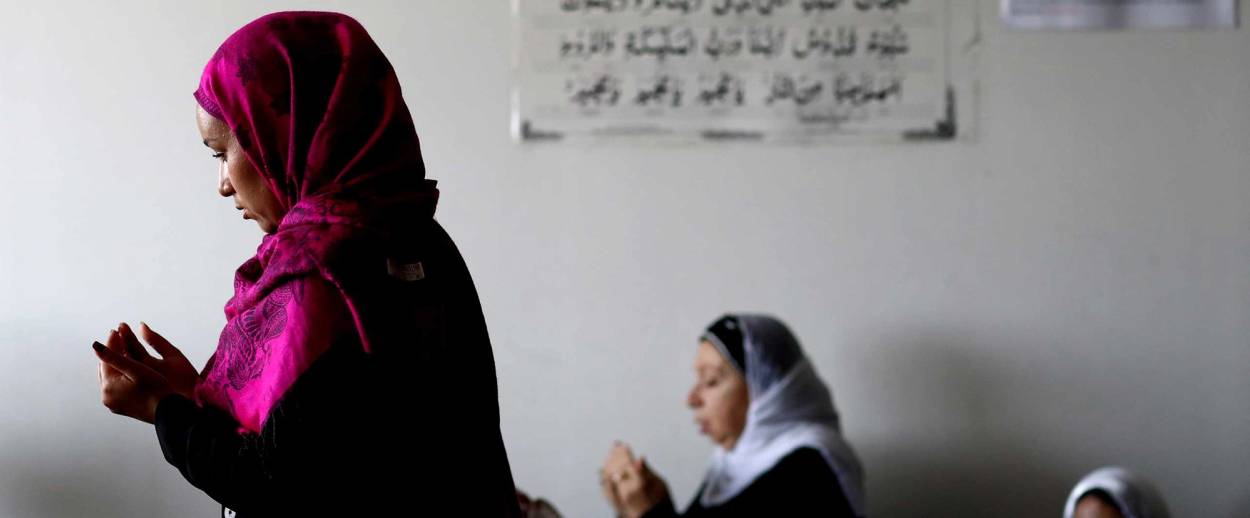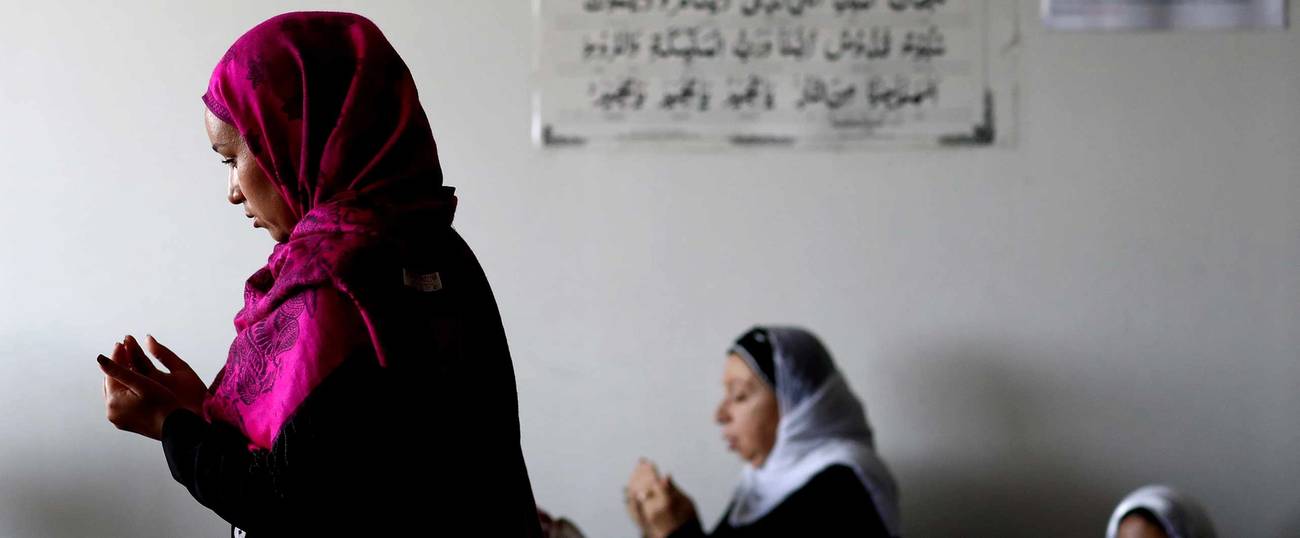Why We Need to Do More to Fight Islamophobia
After the Christchurch massacre, time to double down on partnerships and inclusion




When the Tree of life shooting happened I was overcome with emotions. I was angry. I was terrified. I was grieving. I was shaken to my core.
But I wasn’t surprised. In fact, I was furious at those outside the Jewish community who were. Despite our continuous calls for people to recognize the growing threat to our community, we had been ignored. I could only hope that the bloodshed would focus Americans to understand what we had desperately been trying to tell them—that threats to our community were real and growing. I felt like American Jews were screaming about our fears of violence, but could only be heard by one another.
After the mass shooting at two mosques in Christchurch, New Zealand, I know I am the one who should have been listening. I should have been doing more.
I think about my college roommate, who after tremendous struggles early in life, found peace and joy in her conversion to Islam and in putting on her hijab. Many of our friends struggled to understand, but I understood her completely. Faith has been a source of peace for me, too. I think about colleagues from across my career, and how they rolled up their sleeves and worked alongside me. I think about our president and his hateful rhetoric and cruel policies.
I am proud to see Jewish institutions like the RAC, the ADL, AJC, HIAS, Zioness, T’ruah, and many, many more standing with Muslim communities to fight hate, combat various extremist threats both from inside and outside our communities, and improve relationships between the communities. As hate crimes have risen against both Jews and Muslims, it’s been heartening to see our communities stand together in frightening times. I was deeply moved to see members of the Tree of Life synagogue raising funds and expressing solidarity with victims of Christchurch. On an individual level, 72 percent of Jews believe that Muslims face substantial discrimination in the U.S.
Still, I know Islamophobia is still present among us. I have experienced it within the Jewish community. It crosses my screen regularly, with messages on social media that are steeped in xenophobia, anger, bigotry, and overwhelming fear—messages from accounts that are furious at me for supporting refugees and other immigrants, for naming bigotry against Muslims, for expressing solidarity and shared humanity.
I understand their fear—our fear. Fear is our inheritance. But this response to fear—to hate—is untenable, and it is unjust. I take a deep breath and I write back to the hateful messengers. You do not have an ally in me. These are not Jewish values. Block. Block. Block. I try to make it go away. But it’s still there.
I remember, even 20 years later, hearing Islamophobic comments from one of my Hebrew school teachers at synagogue. There was a racist joke that one Muslim in the Mediterranean was pollution, but 1 million would be a solution. She told us the Muslim kids at school weren’t really our friends and we shouldn’t hang out with them. I called my best friend to make sure my memory hadn’t exaggerated the teacher’s words; she recalled them exactly as I did. They were burned into both our memories. We knew they were wrong. Even today I can feel how angry and ashamed we were. We didn’t know how to deal with the situation, we were only kids. It took years for me to tell my parents—and when I did, they were furious. They wished they had known.
I also remember being targeted by Stop the Islamization of America in 2012, because I was organizing Shabbat dinner events in support of Obama for America. My home address and those of several volunteers were posted on their website, an act attempting to intimidate and silence. I was called a kapo and a Nazi. I am deeply saddened and angry that this organization, defined as a hate group by the ADL, is run by a Jew, Pamela Geller.
I have experienced Islamophobia in my community as a child and as an adult. After the unbearable tragedy of Christchurch, in which 50 people lost their lives, I am asking myself, and all of us, to do more.
First, we must have a zero tolerance policy in our homes, our community spaces and our own minds. We must never allow hate speech to fester in our holy places or our kitchen tables. That doesn’t mean that we shun offenders—it means we talk to them about it. We talk about how easy it is to slip into hateful language and how easy it is for hate to take root in our mind. It’s even easier for hate to take root in times of deep fear, and so we must be more vigilant than ever. We talk about how it feels when we are judged based on assumptions about Jews. We talk about how we can be angry at a government’s policies and their leadership, but it if we hate the people we aren’t living our Jewish values. It’s hard. It’s awkward. It is lifesaving. It is empowering. It must be done.
We need to talk to our kids about what to do when they encounter Islamophobia. They are going to encounter it. Maybe it will be at Passover with a relative. Maybe it will be in the bunk at Jewish summer camp. It is inevitable, and we must discuss it just like we discuss promiscuity, drugs, or bullying. We must tell our kids that it’s wrong, that they should speak up if they can—and talk to us if they feel like they can’t. That it’s a form of bullying and cruelty, and parents need to know about it.
Secondly, we need to understand that we have a dangerous common enemy—the white supremacist domestic terrorist. From Pittsburgh to Christchurch, the white supremacist domestic terrorist is both of our communities No. 1 security concern. Seventy-six percent of extremist murders in the past 10 years in the U.S. were by white supremacists. Hate crimes are rising against both Jews and Muslims, and there is an opportunity to stand together and fight bigotry together.
Thirdly, we must be honest. There are real community tensions. They are driven by war. They are driven by history, from Tunisia to Iraq. Some of it is ancient and some of it is unfolding before our eyes. There is justifiable anger from Mizrahi Jewish refugees, who were stripped of their land, their possessions, their citizenship, and never received compensation from their governments. There are divides that may never be bridged on Israel. There are portions of our communities that will never be friends. If we ignore those histories and those tensions then it will be impossible to build something stronger and more just. We must not only focus on our commonalities, but also have real community dialogue whenever possible. There are places we may never agree, but we can only benefit from increased understanding and conversation.
Islamic extremists are a real threat to our global community. We must tell ourselves and our children a hard truth. There ARE Muslims who wish us harm, and Muslims who share an ideology of hate. There are extremists in the world. This is also true of some Christians. This is also true of those with no faith. The overwhelming majority of Muslims fear the same extremists we fear, whether they be white supremacists or jihadists. We can be angry and afraid of those who wish us harm, but that is no reason to hate and fear Muslims across the world or in our neighborhood. No reason to cross the street in our hometown or turn our backs on Muslim refugees suffering at the hand of ISIS. We should welcome both at our collective table. Engaging in hatred of Muslims does not make us safer; it strengthens the hand of extremists across the world that wish our community harm, whether they be white supremacist or jihadist. Some of us, including me, are more comfortable talking about the threat of white nationalism than corners of Islam that oppress us. We need to talk about it all. Within that honesty, we can fight hatred.
Islamophobia is bad for Judaism and our community. If you care about Jewish continuity you should fight for inclusivity. We should never let the specter of anti-Semitism change who we are. Even in our hardest moments, even when we face hate, we cannot allow hate to change us. That is an existential threat, not just to our safety, but to who we are and the culture we fight to preserve.
We can choose to weaken extremists by creating partnerships. We can join spaces where people seek understanding and partnership, like Salaam Shalom or the Muslim Jewish Advisory Council. Regardless of tensions and community disagreements, we can make a choice not to give in to blind hatred. We can set a standard for our community, and our community can become the standard for others. And perhaps even more importantly, we can privately say no to hate whenever and wherever it rears its head. That is a meaningful first step—perhaps the most radical one of all.
Carly Pildis is the Director of Grassroots Organizing for the Jewish Democratic Council of America, and an advocacy professional based in Washington, D.C. Her Twitter feed is @carlypildis, and her website is www.carlypildis.com.